Are you looking to schedule an interview but unsure how to structure your request? Crafting a clear and polite letter is key to making a great first impression. Begin by introducing yourself and expressing your enthusiasm for the opportunity, then suggest a few specific dates and times for the interview. For more tips and a handy template to streamline the process, keep reading!
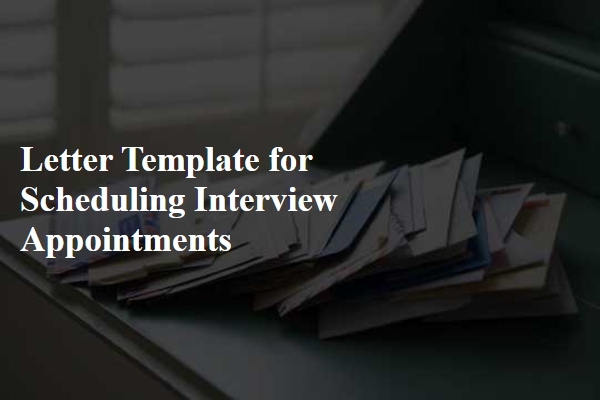
Clear subject line
An efficient email regarding interview scheduling must start with a clear subject line, such as "Interview Appointment Scheduling for [Position Title] - [Your Name]". This subject line immediately informs the recipient about the purpose of the email, including the specific job title and the candidate's name. Including the date can also be beneficial, for instance, "Interview Appointment Scheduling for Marketing Manager - John Doe - September 25, 2023". This approach not only clarifies the topic but also aids in organizing correspondence effectively. A concise, straightforward subject line enhances the likelihood of prompt responses, facilitating smoother communication during the recruitment process.
Polite greeting
Scheduling interviews with potential candidates for job positions is critical in the hiring process. A well-crafted email begins with a polite greeting, addressing the candidate by name. This personal touch fosters a sense of respect and professionalism. Following the greeting, it's essential to mention the specific job title applied for and express appreciation for the candidate's interest in the position. Offering clear date options for the interview, along with time zones (e.g., Eastern Standard Time) and the platform (Zoom or Google Meet), enhances clarity. Additionally, providing a brief overview of what to expect during the interview process can help candidates prepare effectively. Ending with a courteous closing note reinforces a positive tone and encourages a prompt response, facilitating smoother scheduling arrangements.
Purpose of the email
Scheduling an interview appointment requires clarity and professionalism, emphasizing the purpose of the communication. The email should outline specific details such as the position title, the date and time options for the interview, and the method (in-person, phone, or video call). Additionally, mention the interviewers' names, their roles within the company, and any relevant context about the interview process. Providing an agenda or topics that will be covered can enhance preparation. Including contact information for any follow-up questions ensures a smooth communication channel.
Suggested date and time options
Scheduling interviews often involves proposing specific dates and times for both parties to consider. For instance, suggesting Tuesday, November 7, at 10:00 AM and Thursday, November 9, at 2:00 PM can streamline the process. It's important to consider both weekends, such as Saturday, November 11, and Sunday, November 12, for more flexibility. Utilizing time zones, like Eastern Standard Time (EST) or Pacific Standard Time (PST), may ensure clearer communication. Additionally, confirming the duration of the interview, typically around 30 minutes to 1 hour, allows the interviewee to prepare adequately. Finally, including a method of communication, such as Zoom or Microsoft Teams, can facilitate seamless scheduling.
Contact information for confirmation or questions
Effective scheduling of interview appointments often relies on clear contact information to facilitate confirmation or address any questions. Providing a dedicated phone number, such as (555) 123-4567, ensures direct communication for quick clarifications or adjustments to the schedule. Additionally, including an email address, like info@interviewcompany.com, allows for detailed correspondence regarding scheduling details or any changes that may arise. Specifying a response timeframe, such as 24 to 48 hours, can streamline the confirmation process, preventing any misalignment in scheduling. Utilizing these contact methods can greatly enhance the overall efficiency of the interview arrangement, benefiting both interviewers and candidates.

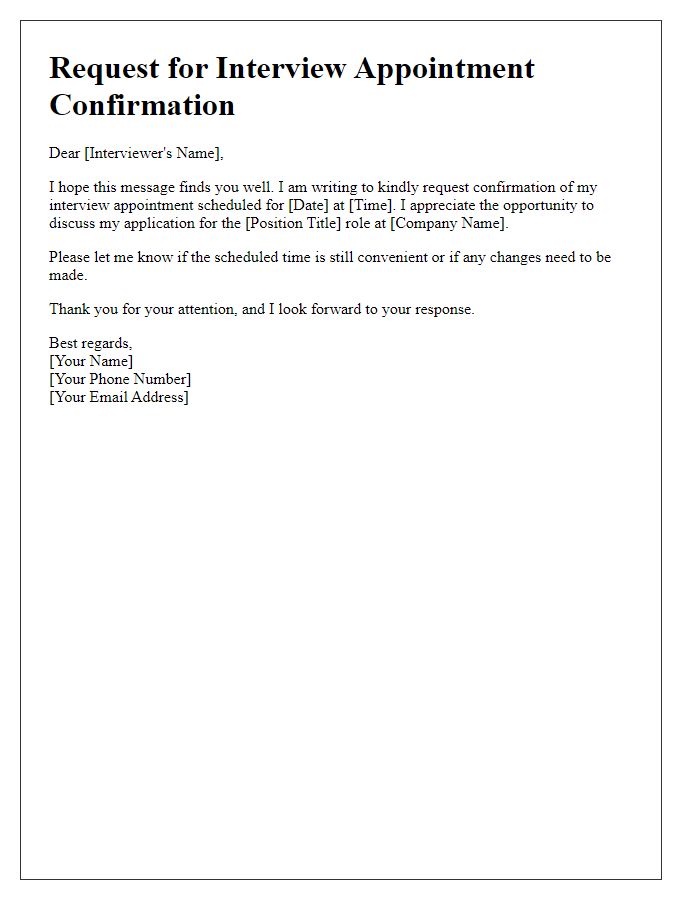
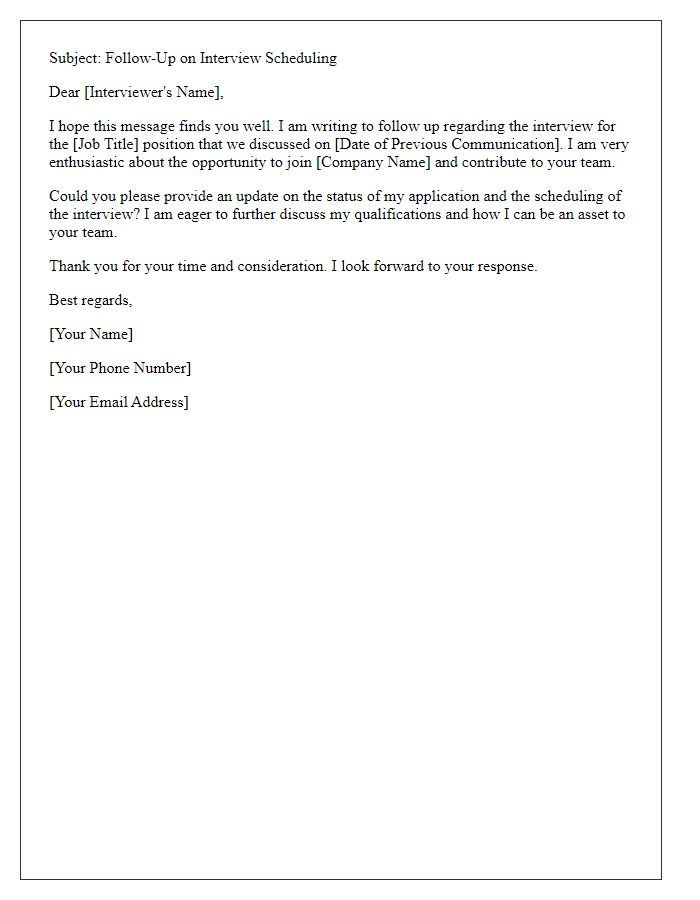
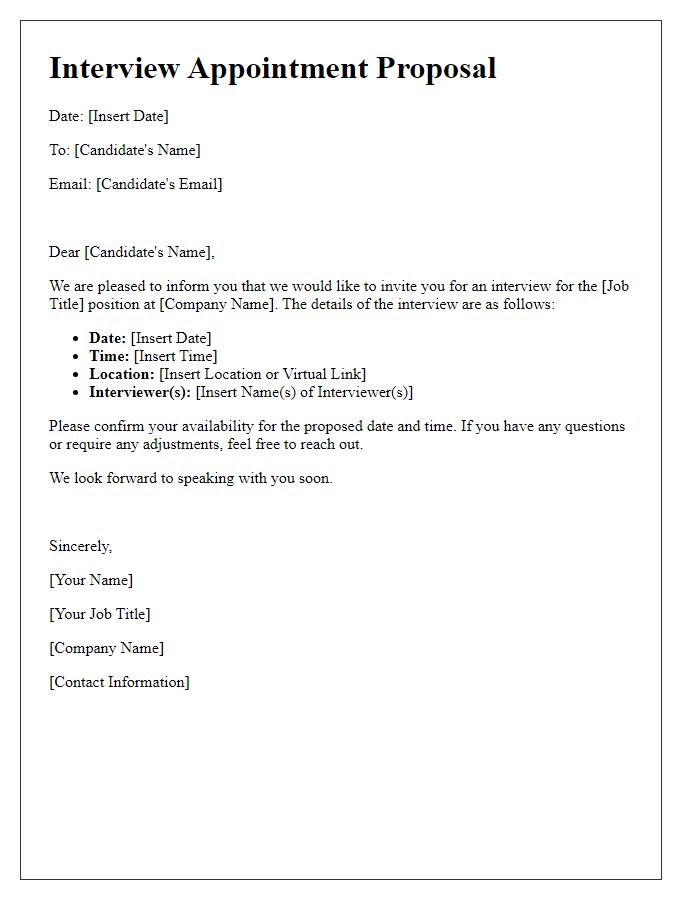
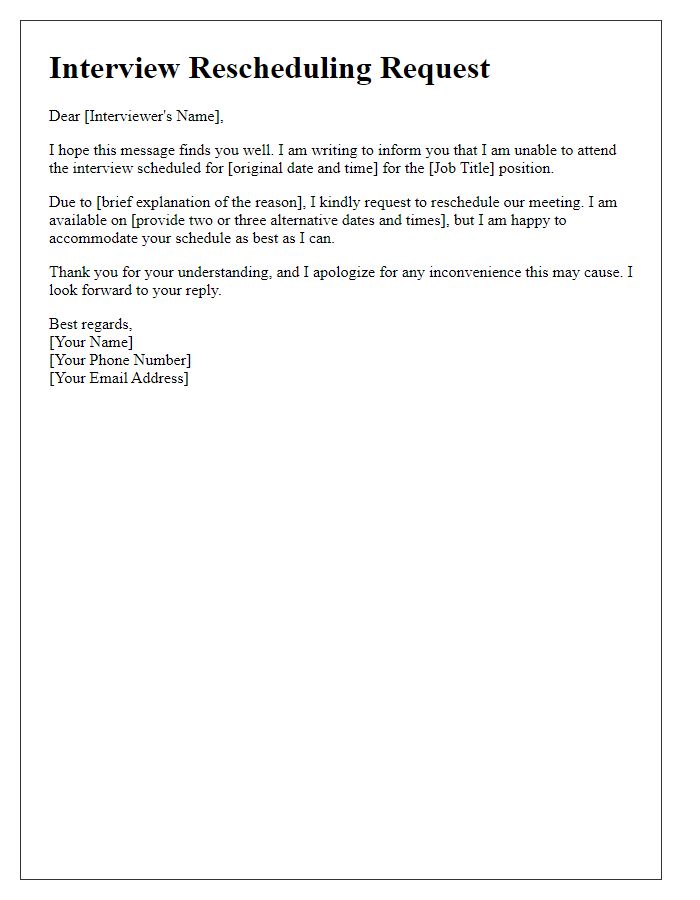
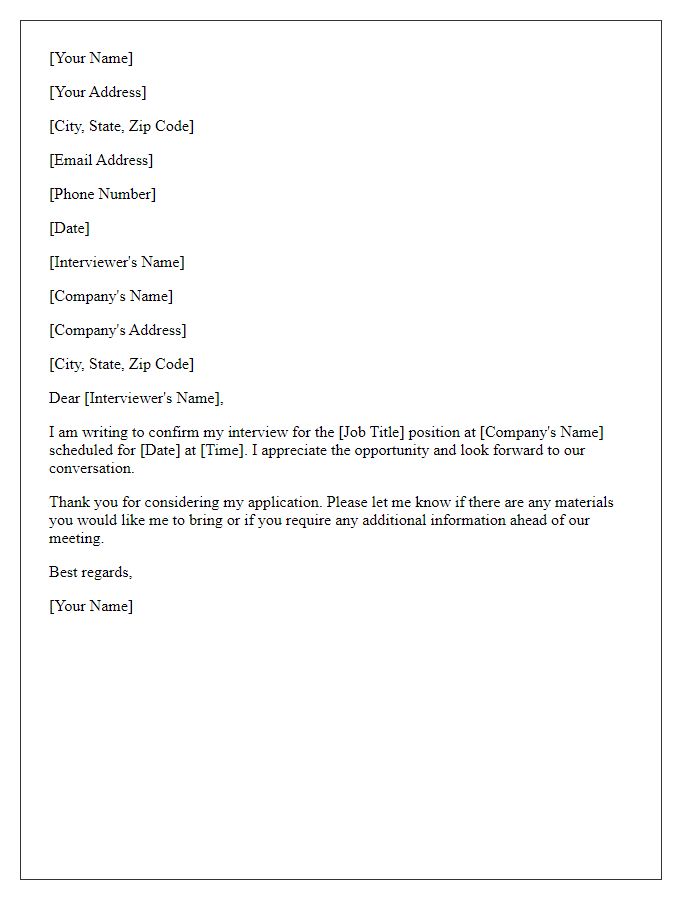
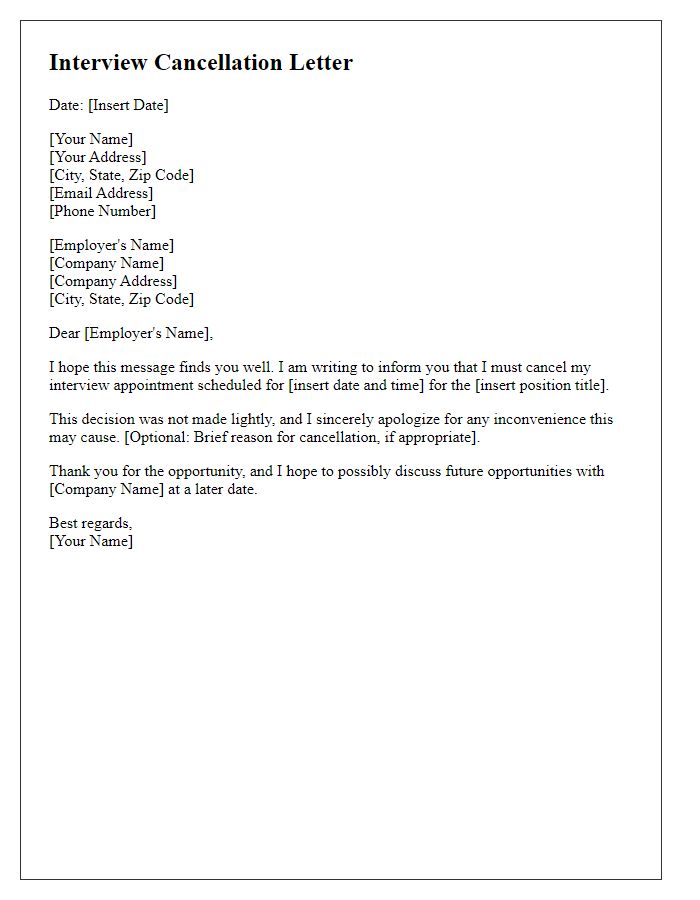
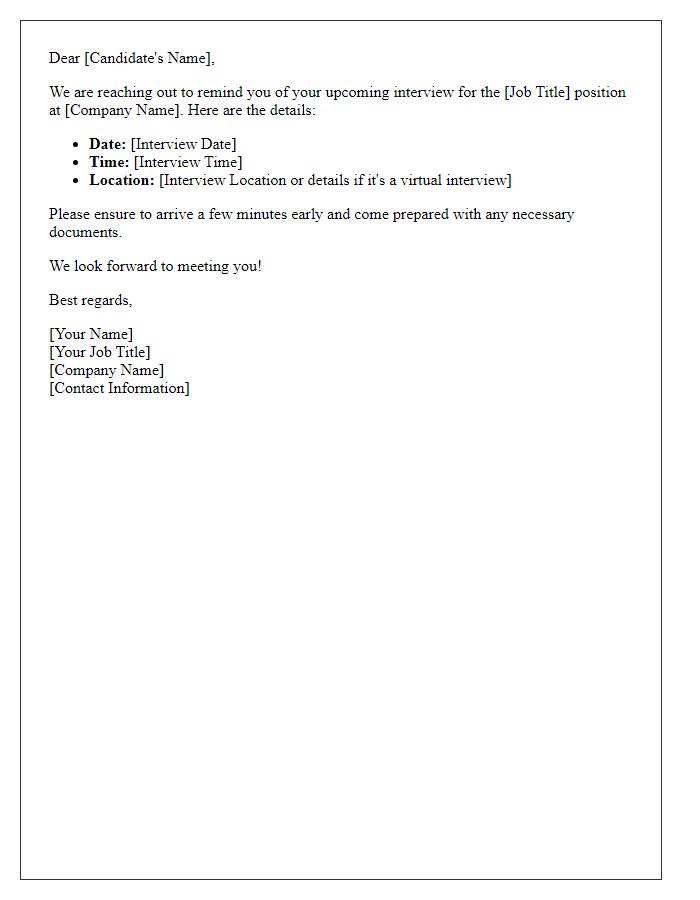
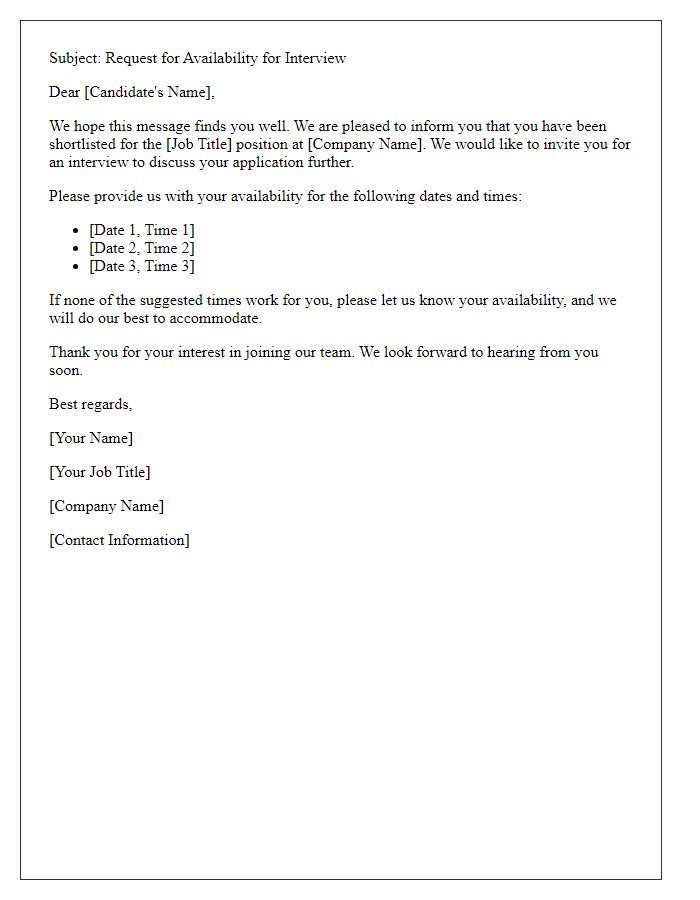
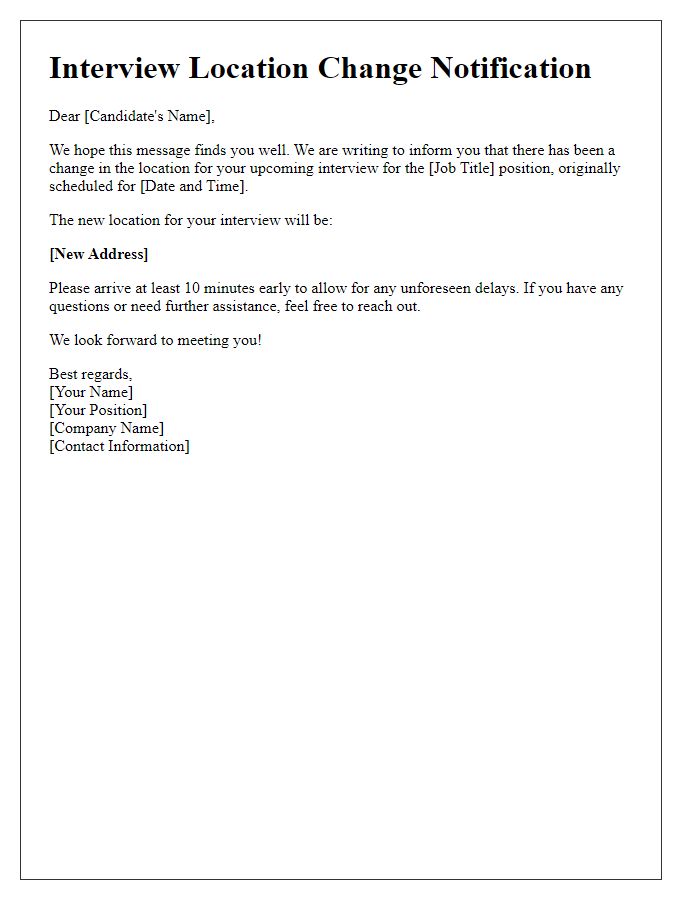
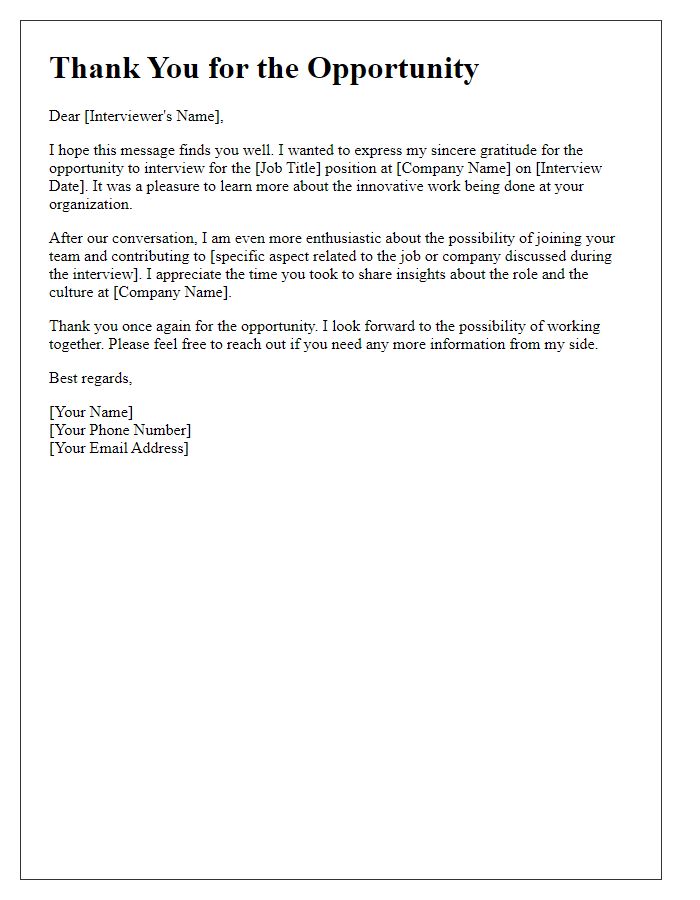

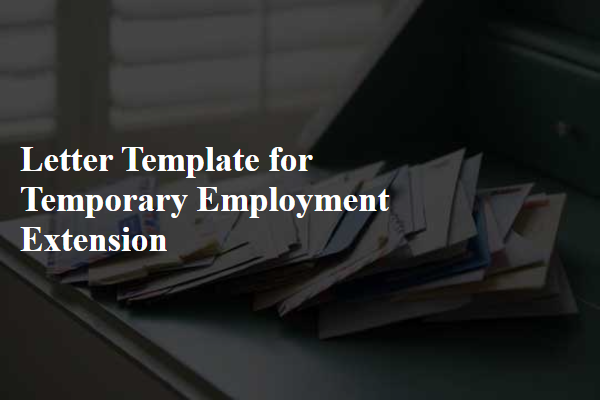
Comments